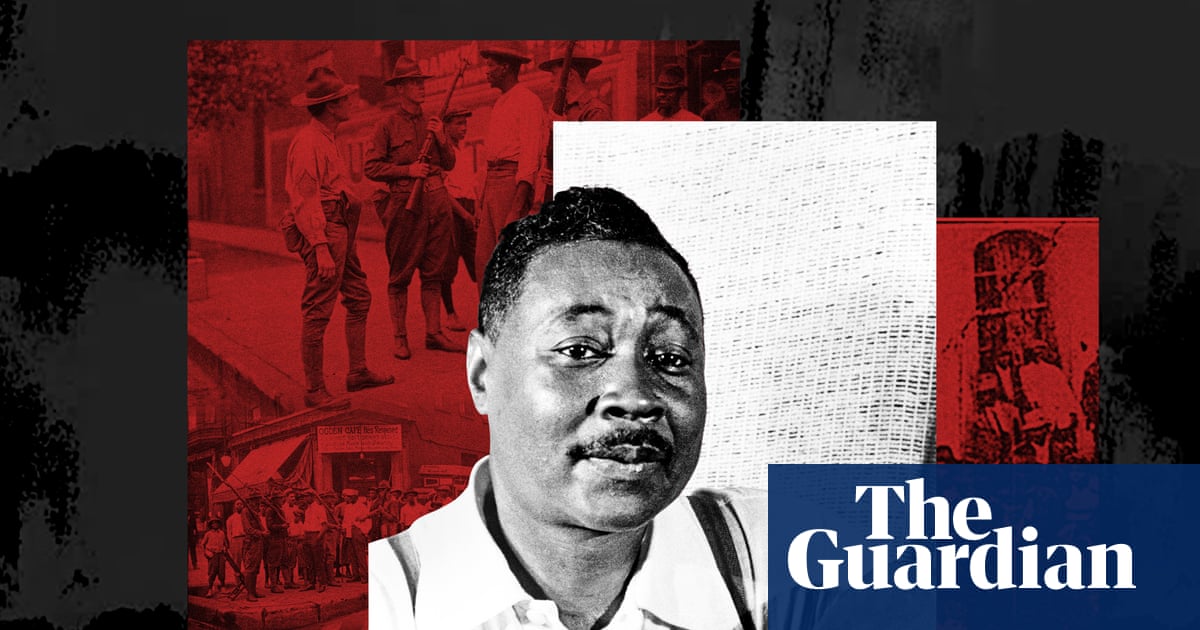
"During this volatile time, which became known as the US's Red Summer, a wave of racial violence engulfed the country. In a situation replicated across the western world, hundreds of thousands of first world war veterans had returned home and were now looking for work. Among them were Black troops who had fought for the allied powers and hoped that they would be awarded equal rights in return for their service."
"McKay, a 28-year-old Jamaican immigrant and aspiring poet, was shaken by the violence. It was the first time I had ever come face to face with such manifest, implacable hate of my race, and my feelings were indescribable, he later said. I had heard of prejudice in America but never dreamed of it being so intensely bitter. The experience would prove formative to his writing. During the Red Summer riots, he wrote the impassioned sonnet If We Must Die."
In summer 1919 Claude McKay worked as a dining car waiter on the Pennsylvania railroad and carried a revolver because of widespread racial violence during the Red Summer. Hundreds of thousands of returning First World War veterans, including Black troops who had fought for the Allies, competed for jobs and expected equal rights, but faced violent backlash and entrenched prejudice. Between April and November 1919 hundreds, mostly Black Americans, were killed and thousands injured. McKay, a 28-year-old Jamaican immigrant and aspiring poet, was shaken and wrote the sonnet If We Must Die. Publication in leftist and Black press established him as a prominent Harlem poet.
Read at www.theguardian.com
Unable to calculate read time
Collection
[
|
...
]